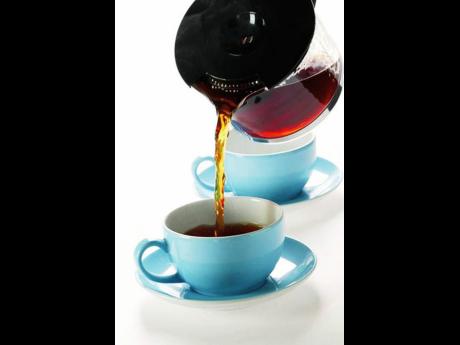Ounce of Prevention | Aspartame - a sweet poison
With increased public awareness about the dangers of sugar, many people now use artificial sweeteners to satisfy their sweet tooth. The most popular artificial sweetener found in groceries, supermarkets, in kitchens and on our dining tables is called aspartame.
On most restaurant tables, right beside the sugar are pretty pink and blue packets of the chemical aspartame, a well-known toxin. It is marketed under various trade names like NutraSweet or Equal.
Have you had your toxins today? You can hardly buy a stick of gum or a box of candy without being offered a dose of aspartame. Without carefully reading the label, you would not even suspect that the product contains aspartame. Advertisements portray it as a healthy alternative to sugar. Sadly, because of this deception, many healthconscious people regularly use aspartame-sweetened products.
Aspartame chemistry
Aspartame is a synthetic chemical made of two amino acids-phenylalanine and aspartic acid-bonded with methyl alcohol. The amino acids can go directly to the brain and disturb your nervous system. Though your brain naturally uses phenylalanine, aspartame consumption creates abnormally high phenylalanine levels that increase the risk of seizures.
Meanwhile, the methyl alcohol breaks down in the body to formic acid (the poison in ants sting) and formaldehyde (the chemical in embalming fluid). These are also extremely toxic substances and every time you drink a diet soda or chew sugarless gum containing aspartame, you give your body an unhealthy dose of them. By the way MSG, another poison in the modern diet, acts in synergy with aspartame to worsen the damage they both cause.
... Side effects of aspartame
As far back as the 1980s, the US Department of Health and Human Services received thousands of complaints regarding adverse reactions to aspartame. However, the enormous power of vested economic interests contrived to 'prove' that aspartame was perfectly safe. One expert, Dr Janet Starr Hull, has listed some of the common side effects of aspartame use:
Nervous system: Epileptic seizures, headaches, migraine, severe dizziness, unsteadiness, memory loss, drowsiness and sleepiness, numbness of the limbs, slurred speech, hyperactivity, restless legs, facial pain, tremors, attention deficit disorder, and even brain tumours.
Eyes and ears: Blindness, blurring or decreased vision, bright flashes, decreased night vision, pain in the eyes, bulging eyes, ringing or buzzing sounds, hearing loss.
Psychological/psychiatric: Depression, irritability, aggression, anxiety, personality changes, insomnia, phobias.
Others: Palpitations, shortness of breath, high blood pressure, nausea, diarrhoea, abdominal pain, wheezing, asthma, itching, skin rash.
Aspartame and diabetes:
Aspartame is particularly dangerous to diabetics who, unfortunately, have been encouraged to use this sweetener. Aspartame can precipitate diabetes, worsens blood sugar control, cause diabetic seizures, and interact badly with insulin. This may be because your taste buds and brain is not able to differentiate between the sweetness of aspartame and that of real sugar. Aspartame aggravates diabetic retinopathy, optic nerve damage and promotes blindness. The methyl alcohol it produces causes neuropathy and heightens the risk of diabetics losing limbs.
Aspartame for weight loss:
People concerned with weight loss may resort to using diet foods sweetened with aspartame to cut their calories. Unfortunately, aspartame is often associated with increased sugar cravings, overeating and weight gain!
Items that contain aspartame:
Aspartame is everywhere and Monsanto, its major manufacturer, has made a huge fortune from this chemical. A shortlist of common foods that often contain aspartame includes:
Diet soft drinks, diet juices, instant breakfast cereals, breath freshener mints, sugar-free chewing gum and candy, cocoa, instant teas and coffees, frozen desserts, gelatin desserts, vegetable drinks, jams and jellies, sugar-free ketchup, sugar-free cookies and cakes, laxatives, milk drinks, pharmaceutical drugs and supplements, children's vitamins, sugar-free shake mixes, tabletop sweeteners, topping mixes, wine coolers, yogurt.
... Protection against aspartame
The most important thing is to stop exposure to this toxin. Avoid even small amounts, as once sensitised to aspartame even minute amounts can produce toxic symptoms. Develop the habit of reading carefully the ingredients list of everything packaged you put in your mouth. Be particularly wary of 'sugar free' or 'sugarless' foods and drinks.
I recommend the herb stevia as a sugarless sweetener. Known in South America as the 'sweet herb', stevia has been used for hundreds of years without ill effect. It is at least 20 times sweeter than sugar, so a small portion goes a long way and it is available in various forms in groceries and healthfood stores.
Having rid your diet of aspartame (and other toxins), you can help your body to detoxify itself using specific supplements. Natural detoxifying substances are found in cruciferous vegetables such as broccoli, cabbage, Brussels' sprouts and cauliflower. The herb milk thistle substantially enhances detoxification of the liver. Turmeric, found in curry, is a powerful antioxidant that also promotes detoxification.Vitamins C, B complex, E, magnesium and selenium all support the detoxification process.
- You may email Dr Vendryes at tonyvendryes@gmail.com or listen to 'An Ounce of Prevention' on POWER 106 FM on Fridays at 9:00pm. Visit www.tonyvendryes.com for details on his books and articles.



